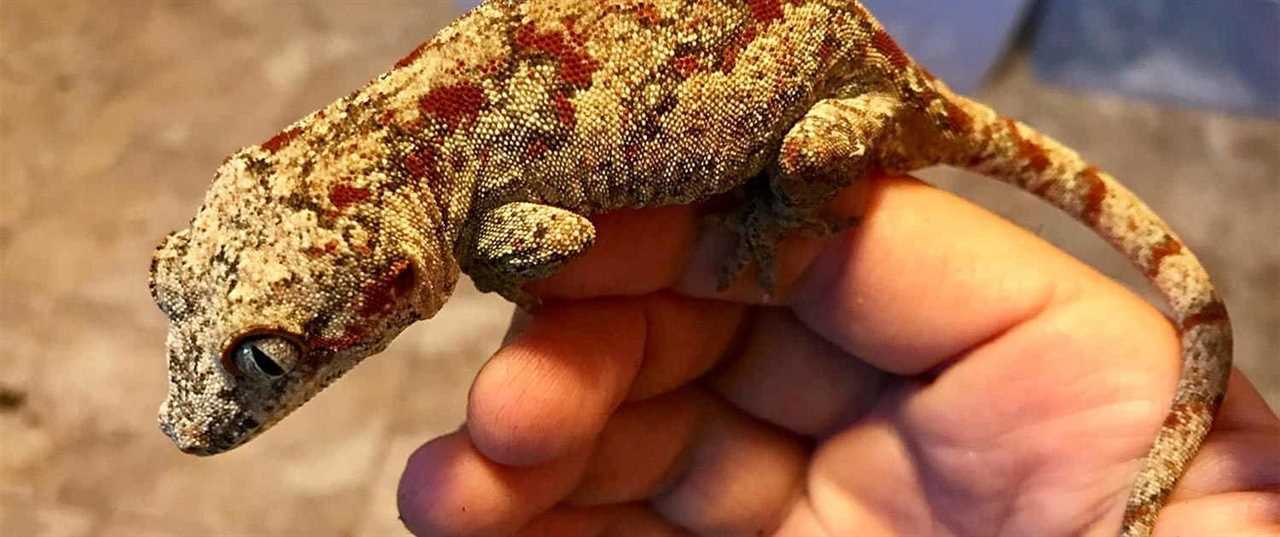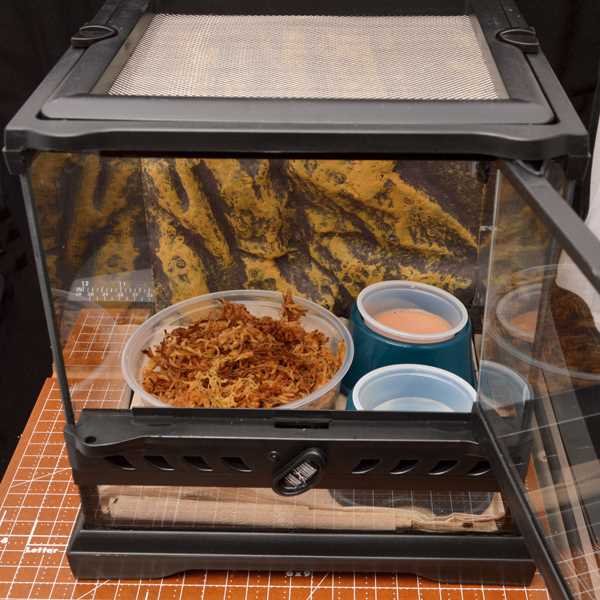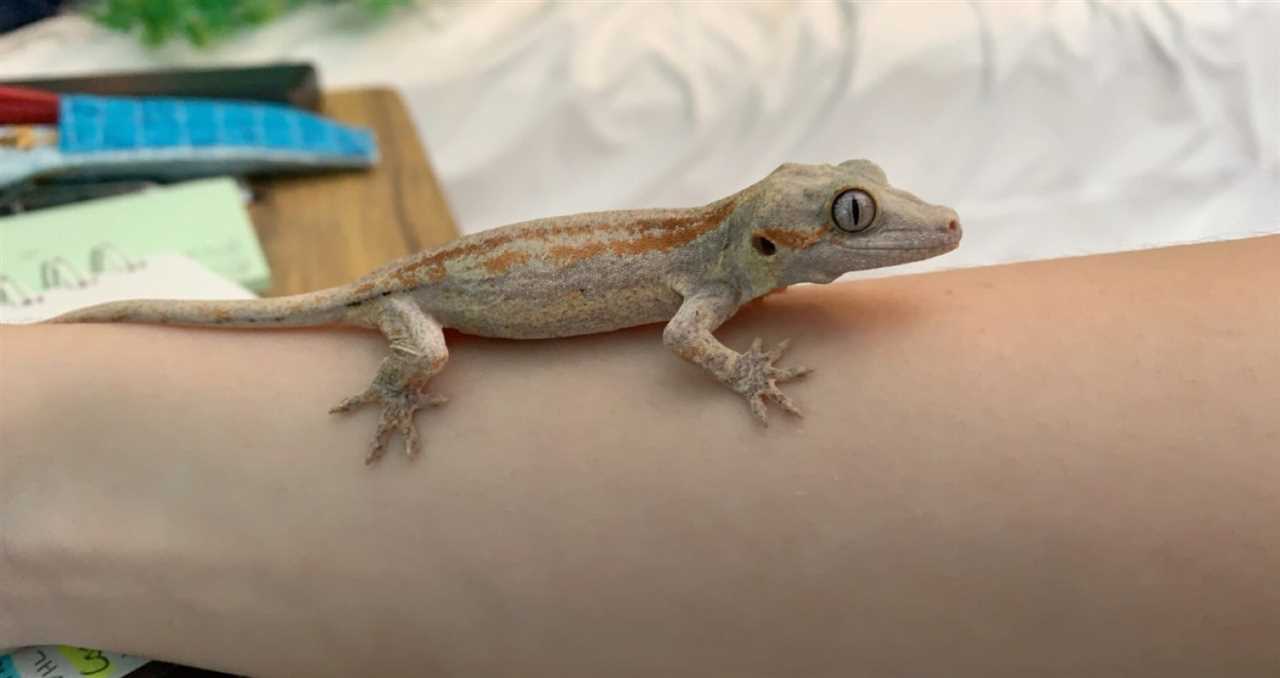
Gargoyle geckos are fascinating creatures that require a balanced and nutritious diet to thrive. As a reptile owner, it is essential to understand the dietary needs of your gecko to ensure its health and well-being. Providing the best food for your gargoyle gecko is crucial in promoting its growth, maintaining its weight, and preventing any potential health issues.
Feeding your gargoyle gecko a variety of insects is the cornerstone of its diet. These creatures are insectivorous, meaning that insects make up the majority of their food intake. Some of the best insects for gargoyle geckos include crickets, roaches, and mealworms. It is essential to provide a variety of insects to ensure that your gecko receives a diverse array of nutrients.
The Essentials of Gargoyle Gecko’s Diet

Protein-Rich Foods
Protein is an essential component of a gargoyle gecko’s diet as it helps with growth, tissue repair, and overall development. The primary source of protein for these geckos is insects. Feeder insects such as crickets, dubia roaches, and mealworms are excellent options. These insects can be purchased from pet stores or bred at home to ensure their quality.
Fruits and Vegetables
Gargoyle geckos also require fruits and vegetables in their diet to provide them with vital vitamins and minerals. Some great options include mashed bananas, pureed pumpkin, and blended mango. These fruits can be mixed with calcium and vitamin supplements to further enhance their nutritional value.
In addition to fruits, leafy greens like collard greens, mustard greens, and dandelion greens are excellent choices for providing your gecko with essential nutrients. These greens should be finely chopped or pureed to make them easier for your gecko to consume.
Calcium and Vitamin Supplements
Calcium and vitamin supplements are crucial for maintaining the overall health and bone strength of gargoyle geckos. These supplements can be sprinkled on their food or dusted onto feeder insects before offering them to your gecko.
Feeding Schedule
Gargoyle geckos should be fed every other day, with occasional fasting days to mimic their natural feeding patterns. Offering them a variety of foods and alternating between insects and fruits/vegetables will ensure a well-rounded diet.
1. Balanced Diet: Gargoyle geckos are omnivorous, meaning they require a combination of both plant-based and animal-based foods. Their diet should consist of a balanced mix of protein, fruits, vegetables, and supplements.
3. Fruits and Vegetables: Gargoyle geckos also require a variety of fruits and vegetables in their diet. These provide essential vitamins, antioxidants, and fiber. Some suitable options include mashed bananas, pureed pumpkin, sweet potatoes, carrots, and leafy greens like kale or spinach.
4. Gut Loading: Gut loading is a process of enhancing the nutritional value of feeder insects by feeding them nutrient-rich foods before offering them to gargoyle geckos. This ensures that they receive a complete and well-rounded diet.
5. Calcium and Vitamin Supplements: Calcium and vitamin supplements are essential for maintaining the gecko’s bone health and preventing deficiencies. These supplements can be dusted onto insects or added to their food regularly.
7. Hydration: Ensuring proper hydration is crucial for gargoyle geckos. They obtain most of their water from fruits and vegetables, but a shallow dish of water should also be provided in their enclosure.
Protein: The Building Block of a Healthy Diet
When feeding your gargoyle gecko, it is essential to ensure that the insects are properly gut-loaded. Gut loading refers to the process of feeding the insects a nutritious diet before offering them to your gecko. This ensures that the gecko receives optimal nutritional value from the insects they consume.
In addition to feeder insects, you can also offer your gargoyle gecko other sources of protein, such as cooked chicken or turkey. These should be offered as occasional treats rather than a staple part of their diet.
Protein-Rich Feeder Insects for Gargoyle Geckos
| Feeder Insect | Protein Content |
|---|---|
| Crickets | 20.9% |
| Dubia Roaches | 35% |
| Mealworms | 20.3% |
| Waxworms | 15.8% |
Remember to always provide fresh, clean water for your gargoyle gecko to ensure proper hydration. Water should be provided in a shallow dish that is easily accessible to your gecko.
Feeder Insects: The Best Options for Gargoyle Geckos
One of the best options for feeder insects for gargoyle geckos is crickets. Crickets are readily available and are a great source of protein. They are also easy to gut load, which means feeding them a nutritious diet before offering them to your gecko. This ensures that the nutritional value of the crickets is passed on to your gecko.
Dubia roaches are another excellent option for gargoyle geckos. They are high in protein and low in fat, making them a healthy choice. Dubia roaches are also easy to breed, making them a more sustainable option compared to other feeder insects.
Other suitable feeder insects for gargoyle geckos include black soldier fly larvae, waxworms, and silkworms. These insects offer a variety of nutrients and can be rotated in your gecko’s diet to provide dietary variation.
Remember to dust the feeder insects with calcium and vitamin supplements before offering them to your gargoyle gecko. This helps ensure they receive the necessary nutrients for optimal health.
6. Fruits and Vegetables: A Crucial Part of Their Diet
When selecting fruits for your gargoyle geckos, opt for those that are high in vitamin C, such as strawberries, oranges, and kiwis. These fruits will help boost their immune system and promote overall health. Additionally, fruits like bananas and mangoes are rich in potassium, which supports their muscle function.
Vegetables are also an essential component of their diet. Dark leafy greens like kale and spinach are excellent sources of calcium, essential for maintaining strong bones and preventing metabolic bone disease. Carrots and bell peppers provide beta-carotene, which is beneficial for their eyesight.
When feeding fruits and vegetables to your gargoyle geckos, it is best to offer them in small, bite-sized pieces. This makes it easier for them to eat and reduces the risk of choking. You can also try mixing the fruits and vegetables with a high-quality gecko diet for added nutrition.
Remember to always wash fruits and vegetables thoroughly before offering them to your gargoyle geckos. This helps remove any pesticides or contaminants that may be present on the surface.
| Fruits | Vegetables |
|---|---|
| Strawberries | Kale |
| Oranges | Spinach |
| Kiwis | Carrots |
| Bananas | Bell Peppers |
| Mangoes |
Offering a variety of fruits and vegetables in their diet not only provides essential nutrients but also promotes natural foraging behavior. Remember to monitor their intake and adjust their diet accordingly to maintain a healthy weight. By offering a well-rounded diet that includes a mix of fruits and vegetables, you can ensure the overall health and well-being of your gargoyle geckos.
Gut Loading: Maximizing Nutritional Value
Gut loading is an essential practice for ensuring that your gargoyle gecko receives optimum nutrition from their feeder insects. It involves feeding the insects a nutritious diet before offering them to your gecko. By providing the insects with a balanced and nutrient-rich diet, you increase the nutritional value that your gecko will receive when they eat the insects.
Gut loading is a simple yet effective way to maximize the nutritional value of the feeder insects for your gargoyle gecko. By providing them with a balanced and nutrient-rich diet, you can help support their overall health and well-being.
Calcium and Vitamin Supplements: Keeping Bones Strong
Proper nutrition is crucial for the overall health and well-being of your gargoyle gecko. One key aspect of their diet that should not be overlooked is the importance of calcium and vitamin supplementation.
Gargoyle geckos require a good source of calcium to support their bone health and prevent metabolic bone disease. In the wild, they obtain calcium from the insects they eat, but in captivity, it is essential to supplement their diet to ensure they are getting enough.
Choosing a Calcium Supplement

Feeder Insects and Gut Loading
Feeder insects are an important part of a gargoyle gecko’s diet, and they can also be used to improve their calcium intake. By feeding the insects a nutritious diet before offering them to your gecko, you can increase their nutritional value.
Vitamin Supplements
In addition to calcium, gargoyle geckos also require vitamin supplementation. Vitamin supplements come in both powdered and liquid form. These supplements provide essential vitamins, such as vitamin A, vitamin E, and vitamin C, that are necessary for their overall health.
Frequency of Supplementation
The frequency of supplementing your gargoyle gecko’s diet with calcium and vitamins will depend on various factors, including their age, overall health, and the diet you are feeding them. It is best to consult with a reptile veterinarian to determine the appropriate amount and frequency of supplementation for your individual gecko.
Feeding Schedule: How Often and How Much
Developing a proper feeding schedule is essential for the health and well-being of your gargoyle gecko. These reptiles have specific dietary needs, and their feeding schedule should reflect that. Here are some guidelines to help you establish a feeding routine for your gargoyle gecko:
- Frequency: Adult gargoyle geckos should be fed every other day, while juveniles and hatchlings require daily feedings. This is because younger geckos are still growing and need more nutrients to support their development.
- Variety: Remember to vary your gecko’s diet to ensure they receive a wide range of nutrients. Offer different types of feeder insects, such as crickets, mealworms, and dubia roaches. Additionally, include a variety of fruits and vegetables to provide essential vitamins and minerals.
- Hydration: Gargoyle geckos obtain most of their hydration from the food they eat, but it’s still crucial to provide a shallow dish of fresh water at all times. Change the water daily to prevent the growth of bacteria.
By following these guidelines and tailoring the feeding schedule to the specific needs of your gargoyle gecko, you can ensure they receive a balanced and nutritious diet. Regular monitoring of their weight and overall health will help you adjust the feeding schedule as necessary. Remember, a well-fed gecko is a healthy and happy one.
Ensuring Hydration: Watering Your Gargoyle Geckos
Proper hydration is crucial for the health and well-being of gargoyle geckos. These unique reptiles require a humid environment to thrive, and it is essential to provide them with a constant source of fresh water.
In addition to a water dish, you can also promote hydration by misting the enclosure with water. Gargoyle geckos will often lick water droplets off leaves or other surfaces, providing an additional source of hydration. Be sure to mist the enclosure at least once or twice a day, especially during the warmer months or if your gecko is showing signs of dehydration.
Signs of dehydration in gargoyle geckos include:
- Wrinkled or loose skin
- Decreased activity level
- Loss of appetite
- Sunken eyes
- Dark-colored urine
In summary, keeping your gargoyle geckos properly hydrated is essential for their overall health and well-being. Providing a water dish in their enclosure, misting the enclosure regularly, and monitoring for signs of dehydration are all important steps in ensuring they receive the hydration they need.

I’m Lena Adams—a product of an unconventional upbringing in the African wilderness. My father, a daring explorer of African wildlife, sparked my fascination with reptiles, a passion that intertwined with the tragic loss of my mother during an expedition, leaving an indelible mark on my life. Driven to understand the creatures that captivated my parents, I embarked on my journey, sharing insights about reptiles, frogs, and lizards on my website. Through my explorations and conservation efforts, I honour my family’s legacy while seeking connections—to the creatures, nature, and the mother whose presence I yearn to understand.
